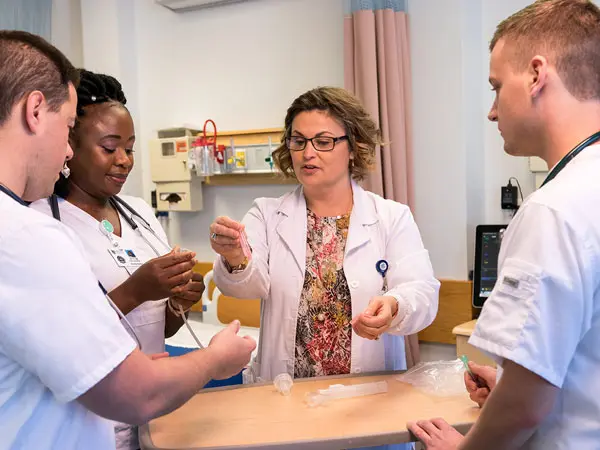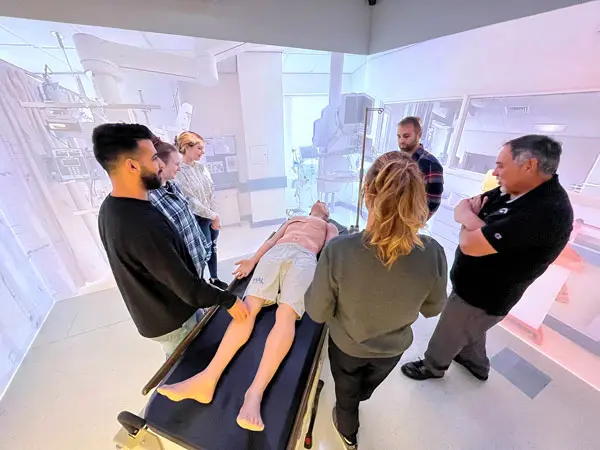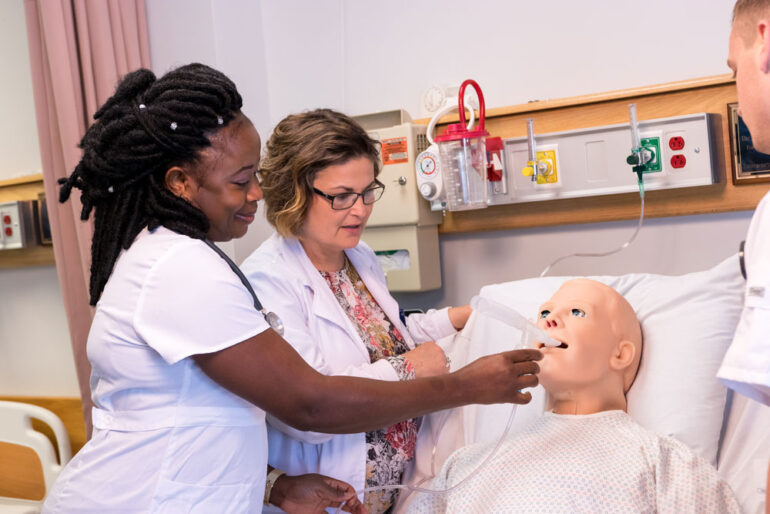 University of Maine at Fort Kent
University of Maine at Fort KentErin Soucy graduated with a bachelor’s degree in nursing from UMFK in 1995. She went on to work at Northern Maine Medical Center and, in 1998, had the chance to teach a group of clinical students as an adjunct instructor. “I enjoyed every day that I worked as a nurse, but I just fell in love with teaching students,” she says. In 1999, Soucy gave up her full-time nursing position to join the staff at UMFK. She completed her graduate degree in 2004 and her PhD in 2011, and today serves as the dean of Nursing, Allied Health, and Behavioral Science.
UMFK’s diverse nursing degree programs prepare students for myriad career paths. The school currently offers a traditional bachelor’s of nursing program, an accelerated program for students who have a bachelor’s degree in a non-nursing field, and an RN-to-BSN program for Registered Nurses who want to finish their bachelor’s degrees. “Some hospitals prefer to have baccalaureate-prepared nurses and incentivize them to come back to school,” Soucy says.
At the graduate level, UMFK offers a master of science in nursing for both adult/gerontology acute care and a psychiatric/mental health nurse practitioners. Last fall, the school launched a doctorate in nursing practice degree, a terminal degree in nursing. “There is a national push for nurse practitioners to become doctorally prepared,” Soucy says.
Fort Kent native Darci Pelletier decided to study nursing after working as a nurse’s aide during high school. “I loved the rewarding aspect of watching someone go from needing help to being healthy again,” she says. Pelletier was attracted to UMFK’s supportive faculty and the diverse campus community, which represented 25 different countries during the last academic year. “We enjoy a very diverse student body that brings a richness to our campus,” Soucy says. “It’s particularly nice for us in health sciences because our graduates can learn about other cultures’ healthcare beliefs and be prepared when they get into practice.”


UMFK’s bachelor-level nursing students must complete 650 hours of clinical time, starting their freshman year. “We want all of our students to be successful,” Soucy says. “We feel that getting them into clinicals earlier helps to increase their competence and their confidence.”
Students also practice their skills in virtual simulations, where they must determine next steps in patient care, allowing them an opportunity to make mistakes in a safe, controlled environment. “That helped me gain the skills to be able to ask the right questions in a clinical setting,” Pelletier says.
UMFK is home to New England’s only state-of-the-art Immersion Suite, where 360-degree projections on the walls and floors allow an entire class to be involved in virtual reality educational experiences. The technology includes smells, sounds, and tactile stimuli to help provide realistic simulations.
Pelletier graduated with her BSN in May and accepted a position at Maine Medical Center, in Portland. “Nursing is such a diverse field,” she says. “I like that I can continue to expand and grow no matter where I am.” Soucy feels great satisfaction in helping foster the next generation of nurses. “Our graduates have so many opportunities for good jobs that are also rewarding,” she says. “I’m lucky to work with wonderful faculty growing a fantastic program that is helping meet the workforce needs in Maine and beyond.”



